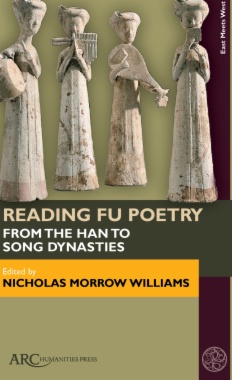The fu genre (or “rhapsody” in English) is one of the major genres of Chinese poetry throughout imperial history. This volume presents close readings of representative works in the genre, spanning over a millennium of its history. Each chapter contains a complete translation of major fu poems, accompanied by an essay presenting the work or works in historical context and also examining their significance in contemporary culture. Ranging in style and topic from the exuberant accumulation of detail in Yang Xiong’s “Shu Capital,” translated by David R. Knechtges, to the luscious lyricism of Wang Bo’s “Spring Longings,” translated by Timothy W. K. Chan, the poems present a panorama of how the genre has been used for both personal and social expression. While the individual essays examine their respective subjects in depth and detail, collectively the essays also offer a sweeping survey of the fu genre from the Han (206 B.C.E.–220 C.E.) through the Song (960–1279 C.E.) dynasty.
- COVER
- CONTENTS
- ACKNOWLEDGEMENTS
- PREFACE
- Chapter 1 INVENTING THE FU: SIMULATED SPONTANEITY INSIMA XIANGRU’S “GREAT MAN”
- Chapter 2 PROBLEMATIC FU OF THE WESTERN HAN: THE “SHU DU FU” ATTRIBUTED TO YANG XIONG
- Chapter 3 RECLUSE’S FRUSTRATION? RECONSIDERING YU XIN’S (513–581) “FU ON A SMALL GARDEN”
- Chapter 4 YUEFU AND FU: WANG BO’SNEW PROSODY FOR “SPRING LONGINGS”
- Chapter 5 LI QINGZHAO’S RHAPSODYON CAPTURE THE HORSE
- BIBLIOGRAPHY

